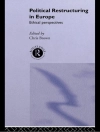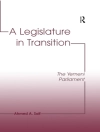The recent history of post-Soviet societies is often described in terms of the transition metaphor. Images of movement as well as changing places and situations were foundational for the social conceptualization of the new nations. The idea of looking for novelty and new beginnings legitimized the dissolution of the USSR as well as many state- and economy-related experiments.
This volume describes how the new societies survived this period of regime change, economic crises, internal wars, political drawbacks, and social innovations, and how they are making sense of it.
The volume’s contributors include Russian, Ukrainian, and German scholars who analyze political, social, and cultural ideologies: Natalia Koulinka, Kostiantyn Fedorenko, Pavel Skigin, Jesko Schmoller, Valentyna Kyselova, Anton Avksentiev, Chris Monday, Egor Isaev, Oleksandr Zabirko, Sergiy Kurbatov, Alla Marchenko, Jennifer J. Carroll, Daria Goriacheva, and Darya Malyutina.
Об авторе
The editors:
Dr. Alexander Etkind is Professor of History at the European University Institute at Florence, and taught at King’s College Cambridge. He is author of Eros of the Impossible (Westview 1996), Internal Colonization (Polity 2011), Warped Mourning (Stanford UP 2013), Roads not Taken (Pittsburgh UP 2017), and Remembering Katyn (Polity 2012) as well as co-editor of Memory and Theory in Eastern Europe (Palgrave 2013) and Cultural Forms of Protest in Russia (Routledge 2017).
Dr. Mikhail Minakov is Senior Fellow at The Kennan Institute of the Woodrow Wilson Center in Washington, DC, and taught at the National University of Kyiv-Mohyla Academy. He is the author of, amongst other books, Development and Dystopia (ibidem Press 2018), and co-editor of Demodernization (ibidem Press 2018). He edits the Ideology and Politics Journal and the website Focus Ukraine.












